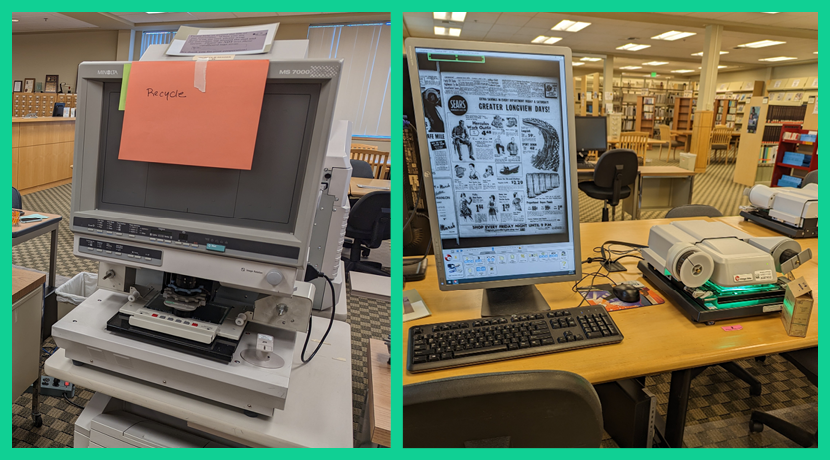
SPRING CLEANING AT THE STATE LIBRARY
Do you have old or obsolete electronic devices stored somewhere in your home that you haven’t used in a long time? What about a box of mysterious, tangled cords that may or may not connect to things you’ve long since discarded?
We do. Libraries, often much like the patrons and communities they serve, also accumulate things like this, and the Washington State Library is no exception.
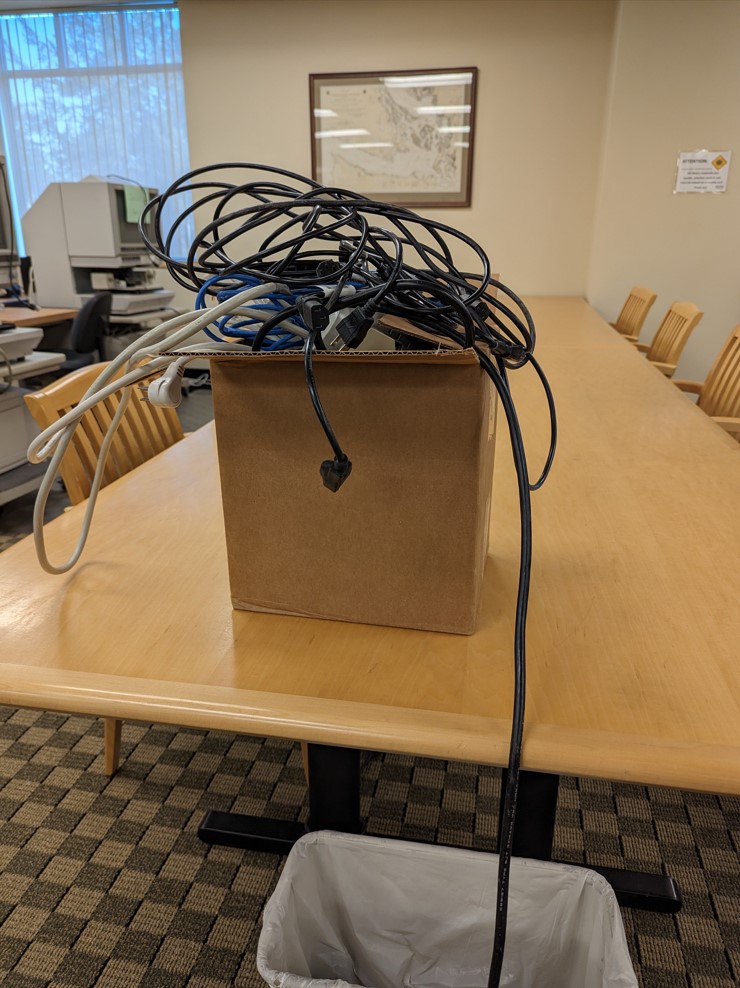
Recently, however, the State Library finally bid farewell to some old stalwarts: our mechanical microfilm machines. Many of them have been a fixture in our microfilm rooms for decades — some of them dating back to our previous home in the Pritchard Building on the Capitol Campus. Large and clunky microfilm readers like these often come to mind when people recall doing newspaper or archival research. Some people can even remember machines with a turn crank that advanced or rewound the film.
Most of these machines are more than 20 years old; the oldest units could be closer to 30. Over time, replacement parts such as fusing units and the light bulbs that illuminate the film have become difficult to find, and even the manufacturers now consider our earliest models obsolete and no longer service them. The task of keeping these machines functional had become downright Sisyphean for State Library staff. Over the years, nearly all these machines have permanently broken down, and the area where we kept them slowly transformed into a microfilm machine graveyard.
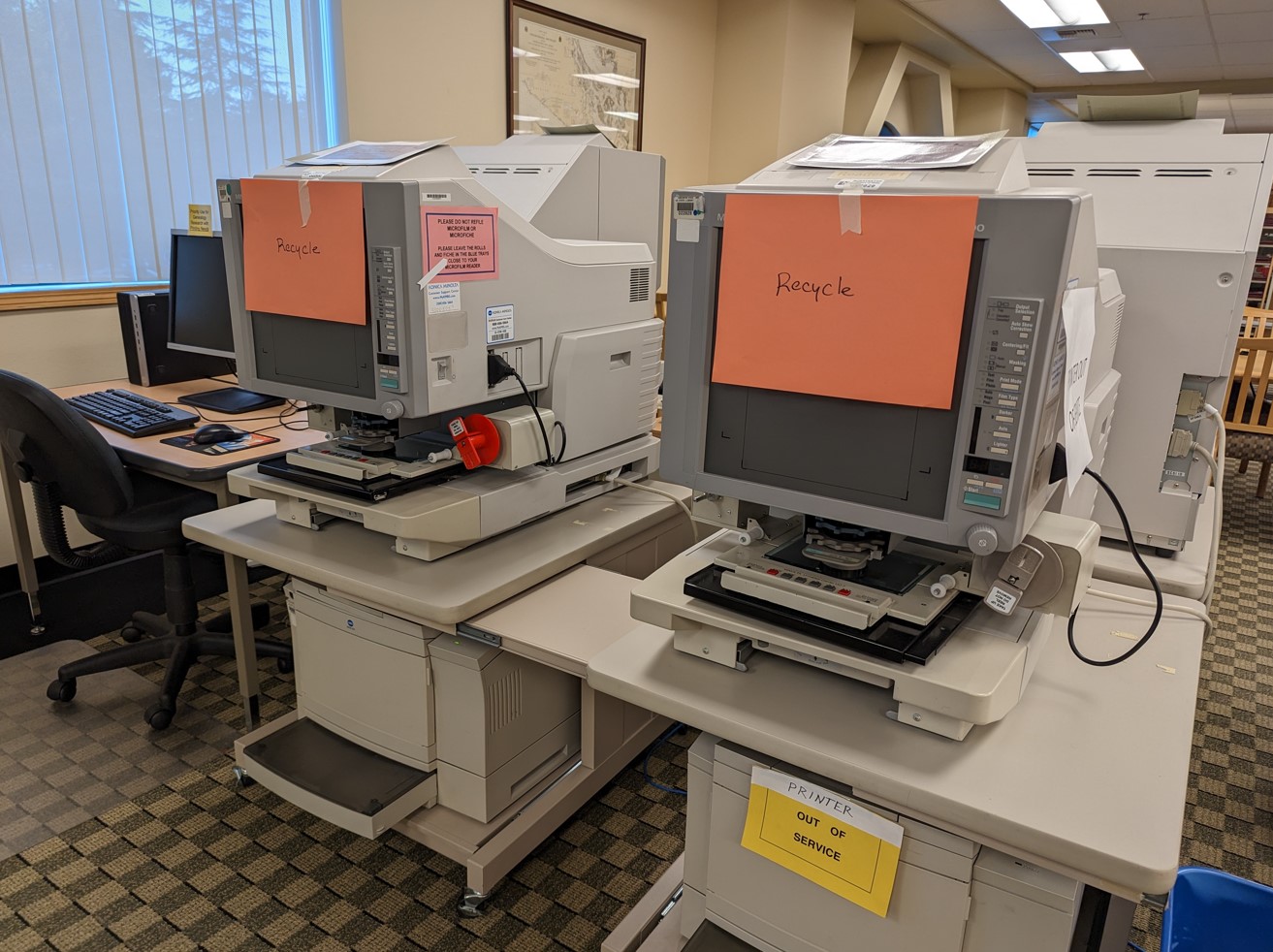
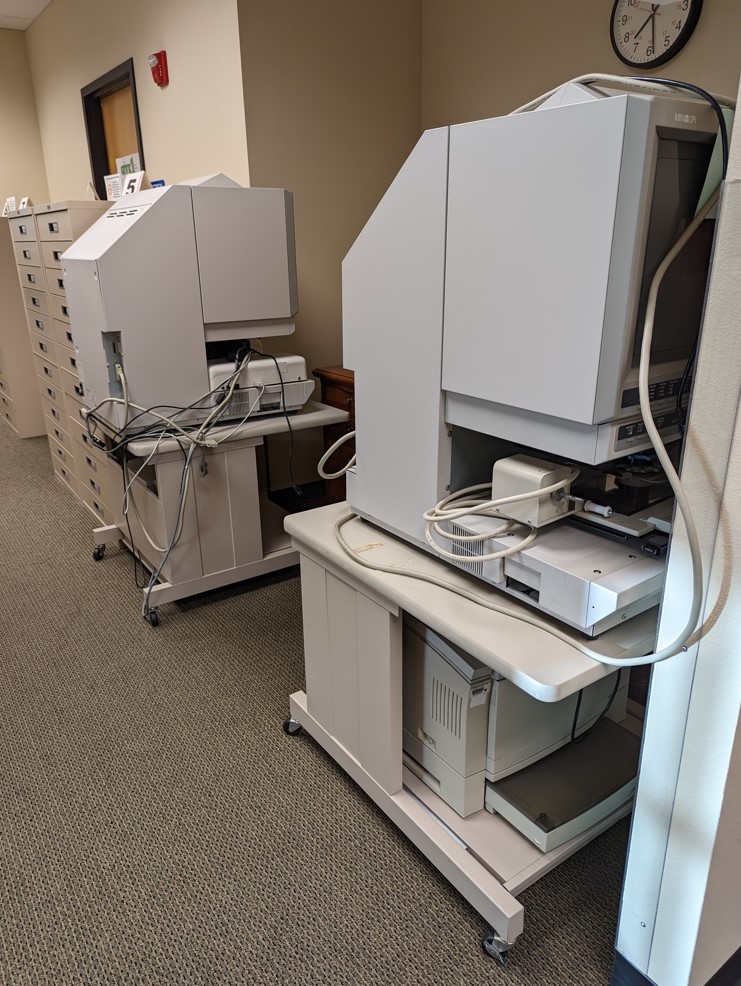
Given all the issues our staff endured dealing with these microfilm readers, some dreamed of an “Office Space” reenactment featuring our outdated machines and some baseball bats. Ultimately, the final outcome was much more dignified: a one-way trip to either State Surplus or a nearby recycling company.
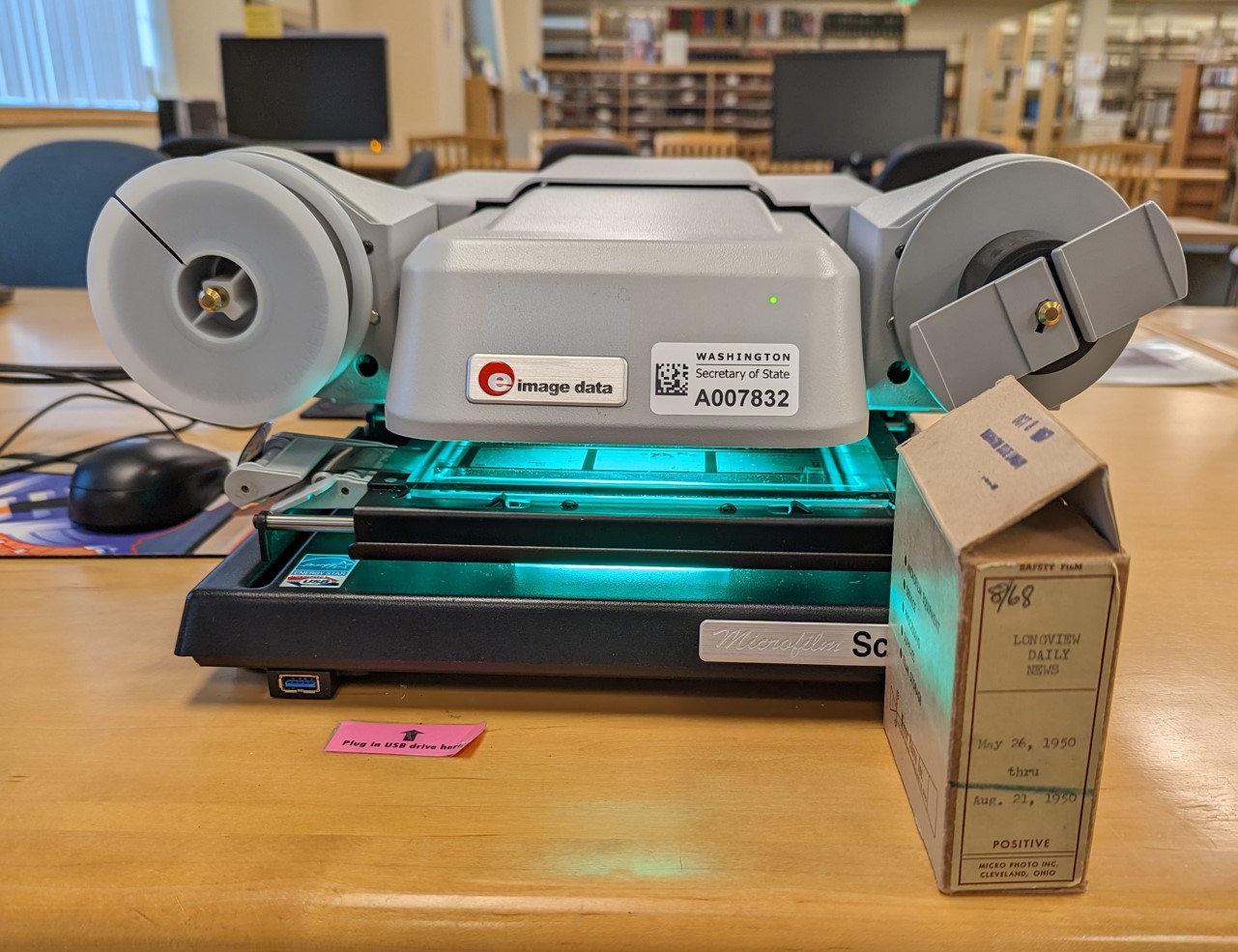
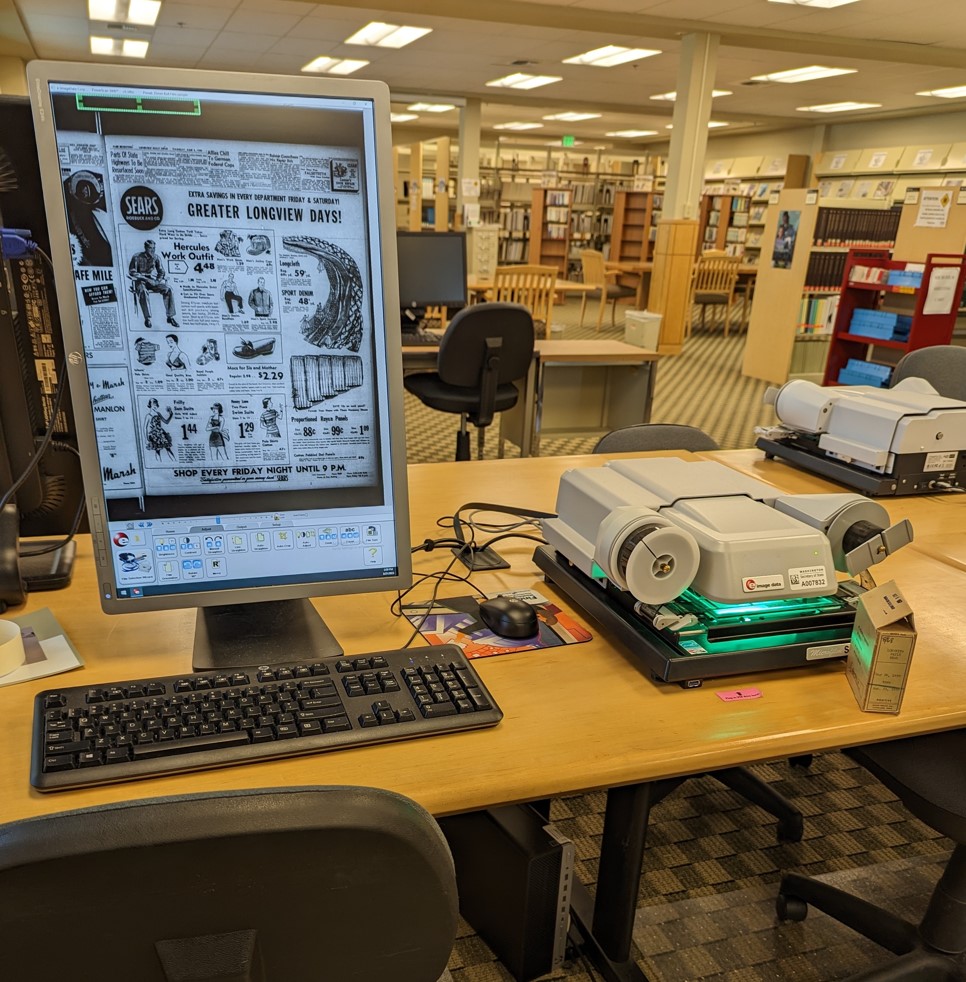
Microfilm research at the State Library uses modern digital film/fiche machines that have been acquired over the last decade. They are far more reliable, easily serviceable, and can produce a far better image from the film than the older machines were ever able to provide. Plus, disposing obsolete, broken, and unused machines frees up a lot of space in the Reading Room, so State Library staff now have the opportunity to rearrange shelves and furniture to better feature our collections and provide additional seating areas for our patrons.
Doesn’t it feel nice to tidy up?